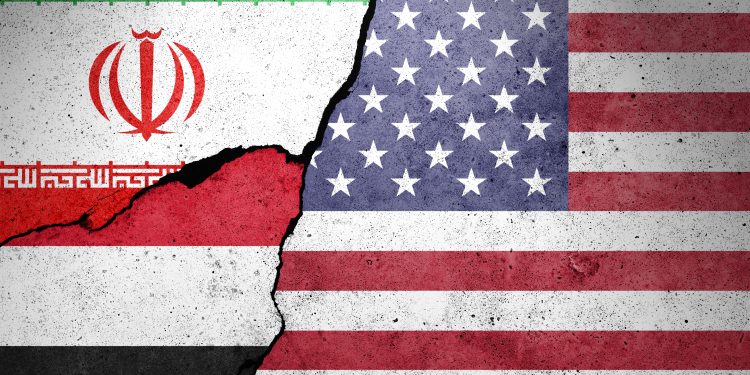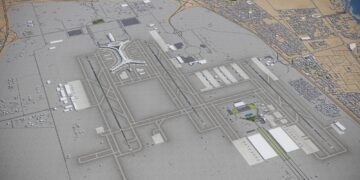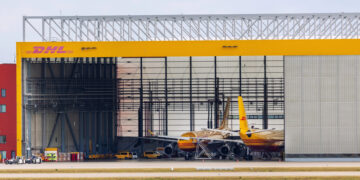Saudi Arabia has initiated a significant venture by establishing a new logistics hub within the port of Djibouti, aiming to enhance its economic ties with Africa and boost the continent’s role as a strategic gateway for trade. This move marks a concerted effort to increase the Kingdom’s economic footprint and stimulate the exchange of goods and services.
The agreement for this project was inked amidst a high-profile visit to Djibouti’s capital by Saudi investors, spearheaded by Hassan Al-Huwaizi of the Federation of Saudi Chambers, and Djibouti Ports and Free Zones Authority’s chairman, Aboubaker Omar Hadi.
A delegation exceeding 100 business leaders and government officials, led by Al-Huwaizi, convened to drive forward this ambitious project.
As part of a 92-year agreement, the initial phase of the logistics zone covers an area of 120,000 square meters, signifying an essential phase in the evolving Saudi-Djibouti economic partnership.
The newly established Saudi logistics city is envisaged to become a central hub for trade and innovation, thus amplifying the Kingdom’s economic influence across the African landscape, as reported by the Saudi Press Agency.
The port of Djibouti, noted for its strategic position, will play a pivotal role in broadening the reach of Saudi products and exports, fostering dynamic economic engagements.
The concurrent Saudi-Djibouti Business Forum brought together over 300 participants, unveiling numerous investment prospects and underscoring Djibouti’s attractive free zone status.
Djibouti has reciprocated by assuring Saudi investors of equal treatment, providing equitable access to various industry sectors, with a special focus on renewable energy and technological advancements.
This joint initiative reflects a deep-rooted commitment to nurturing sustainable economic ties between the nations.
In February, Djibouti’s leader reiterated the country’s resolve to uphold maritime security within the Red Sea. President Ismail Omar Guelleh acknowledged collaborative efforts with major global players, including Saudi Arabia, to guarantee the safety of international shipping routes near Bab El-Mandeb and the Gulf of Aden.
Guelleh highlighted Djibouti’s significant role in international commerce and its collaboration with countries like the US, France, the UK, and other Red Sea bordering nations, with particular cooperation from Saudi Arabia in counterterrorism and maritime security endeavors.
Reflecting on Djibouti’s historical bonds with Saudi Arabia since its independence in 1977, Guelleh expressed an eagerness to deepen cooperation in maritime transport, logistics, and port services, building upon notable advancements in port infrastructure.
Djibouti’s envoy to Saudi Arabia, Dya-Eddine Saïd Bamakhrama, remarked that the signing of the contract between Djibouti’s Ports and Free Zones Authority and the Saudi Investors Alliance will facilitate the creation of a premier logistics city outside of Saudi Arabia, providing a gateway for Saudi products and exports to a host of African nations.









